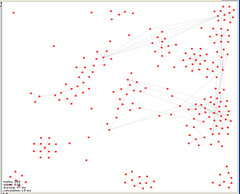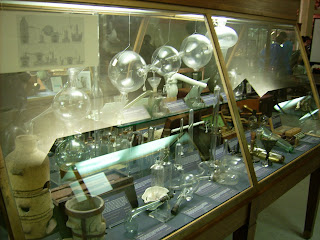
A couple of months ago we took a poll to see what the attitudes of ecologists were towards the concept of senior authorship.

A couple of months ago we took a poll to see what the attitudes of ecologists were towards the concept of senior authorship.
I’ve read two great posts in the last couple of days that highlight what the recent debate over the the possibility of ‘arsenic based life’ has shown about how scientists are leveraging the modern web to quickly evaluate, discuss and improve science. Marc Cadotte, Nicholas Mirotchnick and Caroline Tucker have a great post over at EEB & flow that will fill in the background for you.
We’ve had a bit of discussion here at JE about potential solutions to the tragedy of the reviewer commons, so I found a recent letter in Nature (warning – it’s behind a pay wall) suggesting that there may not actually be a problem interesting.
Senior authorship is the practice whereby the last position on an author line is occupied by the leader of the lab in which the project was conducted (i.e., the P.I., the advisor, whatever terminology you prefer). Being the senior author on a paper is considered a sign of leadership on the project and is arguably […]

If we imagine what the specification for building a scholarly communications system would look like there are some fairly obvious things we would want it to enable. Registration of priority, archival, re-use and replication, and filtering.
After posting about PubCreds I emailed the authors of the original article to invite a response because: 1) it’s only fair if you’re going to criticize someone’s idea to give them a chance to defend it; and 2) I think that the blogosphere is actually the ideal place to have these kinds of discussions because […]

Yesterday I arrived in Oxford, after a 3.5 hour bus transfer from London Stansted. Long, boring ride (though I might have seen a few red kites , but seeing that they were near extinct, I am wondering what other large bird of prey has strong split tail like a swallow). Showed once more that the UK infrastructure has hardly changed since the 19th century. Enjoying an undergraduate room at one of the colleges.
The peer review system has recently been under increasing pressure as the number of papers submitted has been skyrocketing.
We’ve been thinking a lot recently about the idea that the social web can/should play an increasing role in filtering the large quantity of published information to allow the best and most important work to float to the top (see e.g., posts by The Scholarly Kitchen and Academhack). In its simplest form the idea is that folks like us will mention publications that we think are good/important and then people who think we’re worth listening to
Cell Press has recently announced what I considered to be the most interesting advance in journal publishing since articles started being posted online. Basically they have started to harness the power of the web to aggregate the information present in in articles in more useful and efficient ways.